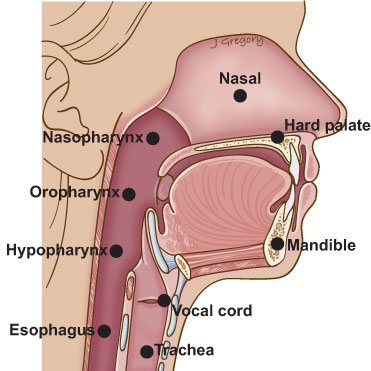Question to Osho: DURING THE LECTURE YOU USED THE TERM, ‘ATTAIN TO HAPPINESS’, AND MY MIND JUMPED IN AND SAID: WORK MORE, WORK HARDER. BUT HOW CAN I WORK TOWARDS SURRENDER? THAT FEELS CRAZY.
This is from Amida.
She has a great work-oriented mind: work is valuable, play is valueless; and all that has to be achieved, has to be achieved through work. That has become an ingrained habit in her mind. But this has been taught to everybody. The whole world lives according to work ethics. Play is, at the most, tolerated. Work is appreciated.
So even here, when I am talking about surrender, when I am talking about being receptive and feminine, your mind goes on popping. Whenever it finds any support, immediately it pops up and says, “Yes.” The very word ‘attainment’ has started a chain of thoughts within you: attainment? – Work, hard work has to be done. Just the word has triggered a certain chain of thoughts, as if the mind was just waiting and watching to jump upon anything which could give it a continuity.
That’s how you listen to me. I have to use words, words which are very loaded, words which you have interpreted in different ways, words which have different connotations to you, associations, meanings. I have to use language, and language is a very dangerous thing. Just listening to the word ‘attainment’, the whole work-oriented mind comes to function. Then you don’t listen to me, to what I am saying. I am saying that attainment is possible only when you don’t try to attain it.
Attainment is possible only when all effort to attain is dropped, because that which you are trying to attain is already there. It cannot be attained. The very effort to attain it will continue to create barriers between you and your reality. But the mind goes on watching, and is always ready to find some support for itself.
Let me tell you one anecdote.
The policeman in a small village had been there some twenty years and he was not very popular with the residents. Far from being the local village bobby who was as much a member of the populus as the local butcher or the local postman, he had always seen himself as the sheriff in a Western film, and treated even the most minor infringement as if it were a case for New Scotland Yard. It was his proud boast that every resident of the village had received a summons as a result of his devotion to duty. As the time approached when he would be replaced by a police car which would cover no less than six villages, including the one which he had come to regard as his own, he suddenly realized that he had never had a case against the local vicar. And his pride could not allow him to retire without bringing this man to justice. His task appeared hopeless. But as he watched the vicar cycling around the village, one day he hit upon a master plan. Positioning himself at the bottom of the only hill in the village, he waited for the vicar to cycle down. When the vicar was about a yard away, the constable stepped in front of him, thinking to himself, “He will run over my foot. It will hurt, but I will get him for not having adequate brakes.” The vicar’s reflexes however, enabled him to stop his bicycle an eighth of an inch in front of the policeman’s boots. The constable reluctantly admitted defeat and said, “I thought I had you that time, vicar.”
The vicar said, “Oh yes, but God was with me.”
“Got you!” said the policeman. “Two on a bike!”
That’s how the mind goes on – watching. Any excuse: rational, irrational; any excuse, even any absurdity, and the mind immediately jumps and tries to continue in the old pattern. I am saying so many things to you, and of course, I have to use language. Be alert, be alert of this tricky mind which is just hiding there behind you, and just waiting for something which can be an excuse for its being strengthened more.
Work is good; but work as work is ugly, not good. Work is good if it is also a play. Work is good if it has an intrinsic value; you paint because you love to paint, because you enjoy painting. Of course, if the painting is sold and you receive some money, that is secondary, that is irrelevant, that is not the point. If you get the money, good; if you don’t get the money, you are not missing anything, because you were so delighted while painting. You are almost rewarded. More than your effort, you have been rewarded. If the painting can be sold that is a plus reward: God is being too kind to you. But as far as your reward is concerned, you have already got it. When you paint your painting, when you write your poem, when you work in the garden and perspire in the sun, you have got your reward.
Work as play, work as enjoyment, work as worship – then it is beautiful; it has a grace to it. Work as an economic activity is ugly. Then you become a part of the market-place. Then you are thinking only in terms of what you are going to get out of it. Then you are never here-now. Then you are always in the result, and the result is in the future. Never be result-oriented – that is the misery of the human mind – be present-oriented. And you are not going to get your innermost being through work. You are going to get it by being present, by being aware. So use your work also as a situation.
But what happens? You listen to me: you go on noting down inside your mind what I am saying.
You don’t really listen to me. You go on collecting cues. You don’t collect understanding. You collect cues, and that’s what creates problems.
Let me tell you another anecdote.
In the old days, the doctor took his assistant with him to the bedside of the patient. The Irish priest’s face was red, and his temperature was high. The doctor slapped him on the back. “Get up, and eat some corned beef and cabbage,” he told him. The next day the Irishman was back at work. The apprentice made a note: red face, high temperature – corned beef and cabbage.
Shortly afterwards, in the absence of the doctor, the young man was himself called to the bedside of a German patient whose face was red and who had a high temperature. The apprentice prescribed corned beef and cabbage. The very next day they notified the apprentice that the German was dead. He then entered the following in his notebook: corned beef and cabbage – good for Irishmen, kills Germans.
This is what you are doing with me – collecting cues. Just try to understand what I am saying. Don’t collect cues. Just watch me, what I am doing here. What is transpiring between me and you here, right in this moment; what energy exchange is happening between you and me right this moment: watch it, feel it, and let it be dissolved into your being. Don’t take notes, otherwise you will always be in trouble.
Tags: Patanjali Work As Play










